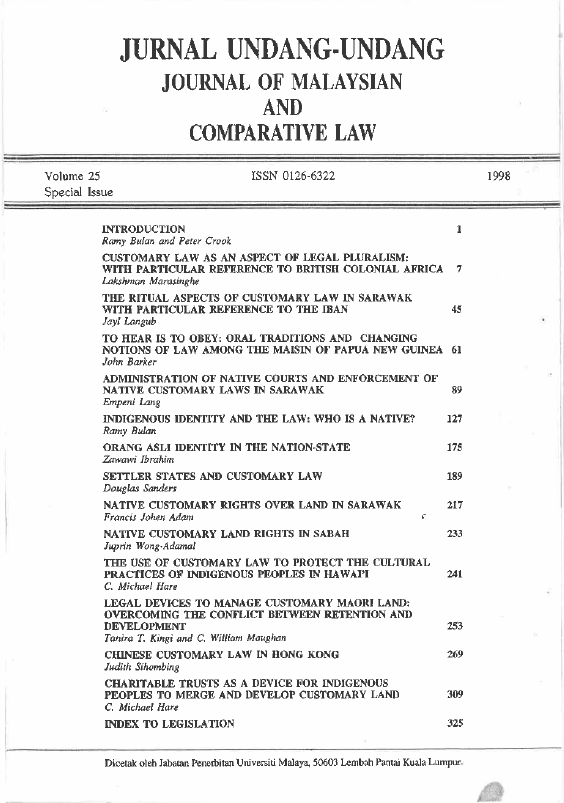To Hear Is To Obey
Oral Traditions And Changing Notions Of Law Among The Maisin Of Papua New Guinea
Keywords:
Maisin, Papua New GuineaAbstract
Customary law among the Maisin, like hundreds of other small socio-linguistic groups in Papua New Guinea, is based on legitimated in oral traditions. The close association is put most succintly in th Maisin language itself. The verb "to listen" or "to hear" connotes an obligation to act accordinly, "to obey". This is especially so when one is listening to a parent, an elder sibling or an elder. The "oral tradition" of the Maisin, however, is made up of far more than words. Besides narratives and songs, people collectively remember the past by participating an observing dances, sacred places, bark-clothe designs and ritual actions, among much else. People associate such things with the moment of creation and with the ancestors. To hear or see the traditions impels respectful obedience. The moral expectations of the community, and the sanctions to uphold them, are embedded in the traditions.
Downloads



